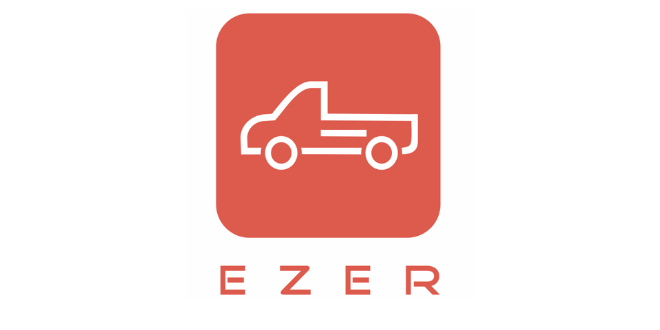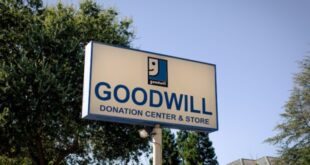The Pomona-based company based on UBER – except its independent contractor drivers move items instead of people – is now five years old. Gary Wlassak, the company’s chief operating officer, spoke with iebusinessdaily.com about how the company got through the pandemic and how he sees the company’s immediate future.
[Note: This is the latest in a series of periodic reports updating EZER and its progress as a start-up company since its first days in operation].
Q: One year ago you said your business was up year-over-year, that the pandemic had actually helped your business. Has that trend continued?
A: Yes, it has. COVID-19 has obviously been a bad thing for everyone, but it has helped us because a lot of businesses needed things transported because of the pandemic. Hospitals, for example. We’ve done a lot of work, a lot of same-day deliveries, with hospitals that needed something right away.
Q: Any clients besides medical clients?
A: We worked with some food banks. But it was mostly medical. Hospitals, doctor’s offices, medical offices.
Q: Did your business slow down at all?
A: No. We never came close to stopping. We’ve even done some free deliveries, trying to help. We’re trying to be about more than making money. These are difficult times, and we’re trying to be good citizens.
Q: When EZER started you were making smaller deliveries. Is that still your main focus?
A: We still take smaller orders, but right now we’re getting mostly larger orders. Businesses are ramping up. Instead of moving 10 boxes, they’re moving 30 boxes.
Q: How has the pandemic changed your business?
A: One thing it has done is make people more aware of the supply chain and operations, something that people have always taken for granted if they thought about it at all. When you buy something at the store, it could have come from down the block or halfway around the world. Because COVID-19 caused so much disruption, especially at the beginning, I think people are more aware of where things come from.
Q: You’ve been in business for five years. Are you in the black yet?
A: No, but we’re a lot closer than we were last year at this time. I don’t want to talk a lot about numbers, because I think there’s more to running a business than turning a profit. I think focusing too much on the numbers is being a little negative. We’re a local business, and we’re out there every day trying to help people as much as we can.
Q: Can you talk about your pay scale?
A: Each driver gets paid a percentage based on miles, time and weight. Every job is different, but I would say the average is about 70 percent.
Q: Has your pay scale changed?
A: No, it stayed the same. We’ve kept pace with the other app-based businesses, which is what we’ve always tried to do. The only change has been that we haven’t been taking as many small orders as we used to.
Q: You’ve marketed EZER as an essential service, one that businesses can use to improve their performance. How has that worked out?
A: It’s worked out very well, especially for anyone who wants to have something delivered the same day. Not many businesses can do that, and we’ve been doing a lot of it. You never know how many people are going to need that.
Q: Last year at this time, Glenn Todd, EZER’s founder, and owner, was considering a name change. He thought EZER – which is Hebrew for “be strong” – might be too vague, that it didn’t explain what the company does. Is that still being considered?
A: No. I think we’re going to stay as EZER
Q: Has Proposition 22, which passed last November with nearly 60 percent of the vote, affected you? That’s the measure that defines app-based transportation and delivery drivers as independent contractors, which makes it easier for them to work flexible hours and get better pay, among other things.
A: It hasn’t affected us at all. We already paid people pretty well, but we’ll have to wait and see. It hasn’t been in effect that long, and it’s still being sorted out. I can tell you that Uber and Lyft both said they would leave California if it passed, but they’re both still here. They both seem to be fine with it.
Q: Have you had any success lining up investors?
A: We’re still working on that. We’re talking to some people and we could have something by the end of the year. We’re looking to grow the business and get a bigger footprint.
Q: You’ve been expanding into out-of-state markets for several years. Which ones are you in now?
A: Phoenix, Las Vegas, Houston, Dallas, Chicago, Minneapolis, and Miami. Our primary market is all of Southern California. We think we’ve built a pretty good platform.
Q: What do you look for when you’re considering going into an out-of-state market?
A: We go wherever someone says they want us. What we’re doing will work just about anywhere. We could go into another country, which we would like to do at some point.
Q: Are you concerned about a second COVID-19 outbreak, the Delta variant? Does it seem like we might be back to the spring of 2020, with cases on the rise again?
A: We’re concerned in the sense that we believe more people should get vaccinated. But if there is another surge it’s not going to slow us down.
Q: Are you still relying on social media for the bulk of your marketing?
A: Yes. Facebook, Twitter, Instagram, LinkedIn. It’s working for us, so there’s no reason to change it. We have to work constantly to get the word out. That’s probably been the most difficult part of running the business: letting people know that we’re here.
Q: When you started, your business model was to help individuals move things, something they bought at Lowe’s or Home Depot that was too big for them to get home. Then you changed to helping businesses.
A: Yes, and we’re going to stay with it because it’s working. There’s no reason to change it, and there’s no one else who’s doing exactly what we’re doing.
Q: Is it true that you still don’t have any direct competition, that no one else is doing precisely what you’re doing?
A: I guess you could say FedEx is a competitor, but they’re a courier, and we want to be more than a courier. We do same-day delivery, and that’s all we do.
 IE Business Daily Business news for the Inland Empire.
IE Business Daily Business news for the Inland Empire.


